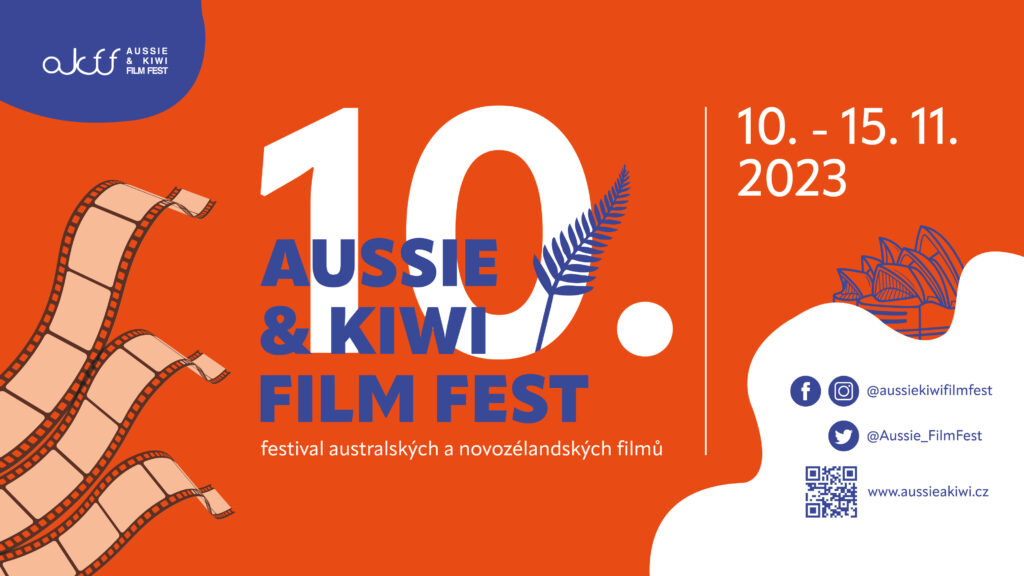2023 Festival Program
There is a special 10% discount for all bar consumption for anyone who will show the festival ticket at Champagneria, the festival’s partner.
Friday 10. 11. Cinema Lucerna, 7:30 pm – TICKETS
RED, WHITE AND BRASS – New Zealand
MARUNGKA TJALATJUNU (DIPPED IN BLACK) – Australia
Saturday 11. 11. Cinema Lucerna, 6 pm – TICKETS
THE NEW BOY – Australia
DEMOCRACY– New Zealand
Sunday 12. 11. Cinema Lucerna, 4 pm – TICKETS
SWEET AS – Australia
RILEY Australia
Monday 13. 11. Edison Filmhub, 7 pm – TICKETS
WE ARE STILL HERE – Australia, New Zealand
VOICE ACTIVATED – Australia
Tuesday 14. 11. Edison Filmhub, 7 pm – TICKETS
BOY – New Zealand
TWO CARS, ONE NIGHT – New Zealand
Wednesday 15. 11. Edison Filmhub, 7 pm – TICKETS
MURIEL’S WEDDING – Australia
A GUIDE TO BECOMING A DETECTIVE – New Zealand
Accompanying events to the festival:
16th October – 3rd December, 2023
Champagneria Bar – Dreaming –An Exhibition of Modern Australian Aboriginal Art (FB event)
You will be able to view and buy original painting by Australian Aboriginal artists from mid October until the 3rd of December.
Friday 3rd November 2023, 7 pm – RESERVE YOUR SPOT
WINE TASTING (AUSTRALIAN AND NEW ZEALAND WINES)
Wednesday 15th November 2023
following the closing night movie, free entry with the movie ticket
A CRAFT ALE BEER TASTING BY THE VOLT AND RAVEN BREWERIES
SCHOOL SCREENINGS OF THE MOVIE BLUEBACK
With an introduction by Greenpeace expert Jan Freidinger on current threats to ocean life.
Wednesday 8th November, 2023
Monday 27th November, 2023
